The celebration of “The Status of Egyptian Women Throughout the Ages” at Ain Shams University
In conjunction with the celebration of International Women's Day, the Community Service and Environmental Development Affairs Sector at Ain Shams University organized, sponsored by Prof. Mohamed Diaa Zain El-Abedeen, President of Ain Shams University, and the presidency of Prof. Ghada Farouk, Vice President of the University for Community Service and Environmental Development, held a celebration entitled “The Status of Egyptian Women Throughout the Ages” in cooperation with the Faculty of Archeology and the participation of the Women’s Support and Anti-Violence Unit and the National Council for Women, Cairo Branch.
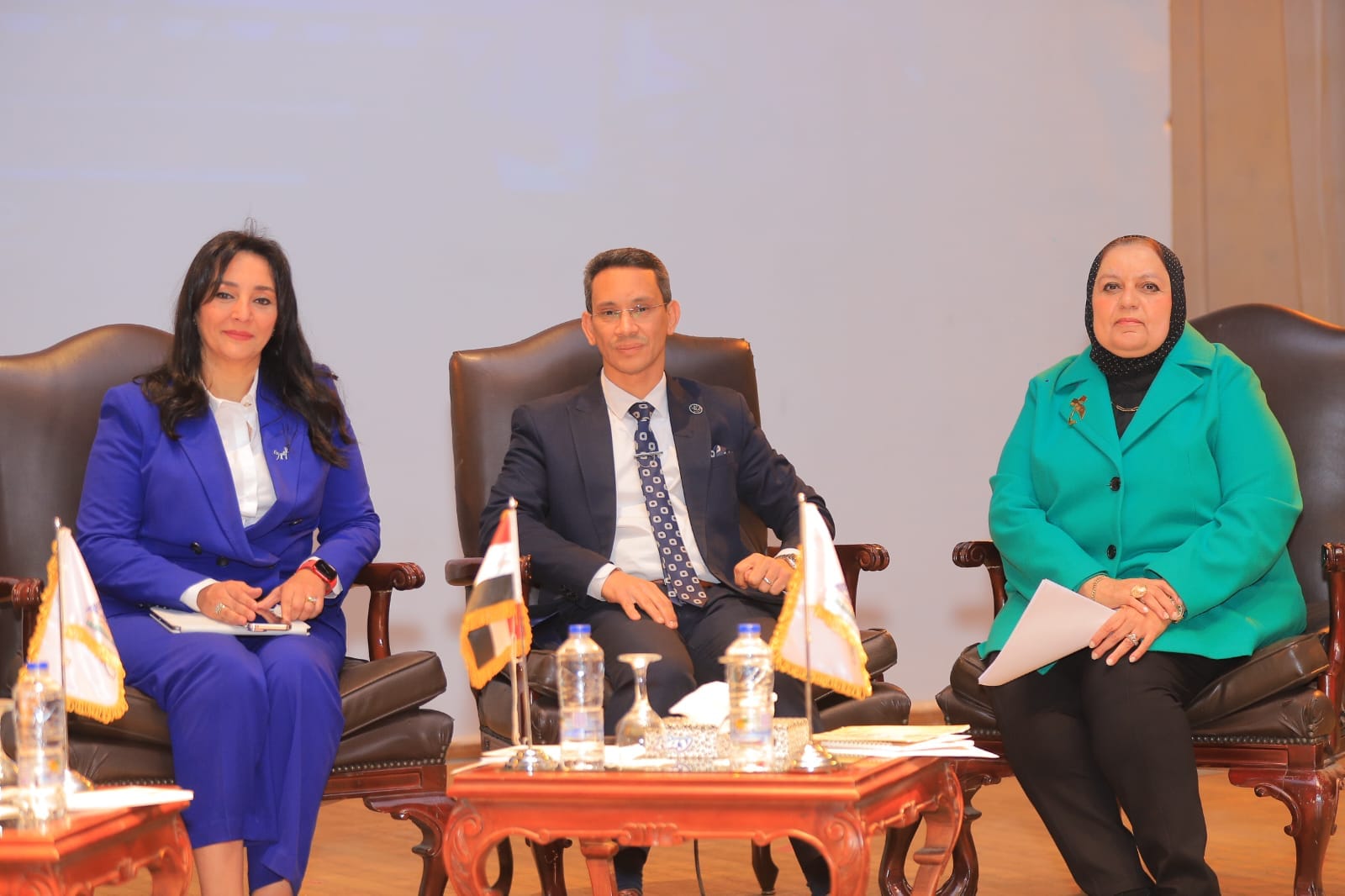 |
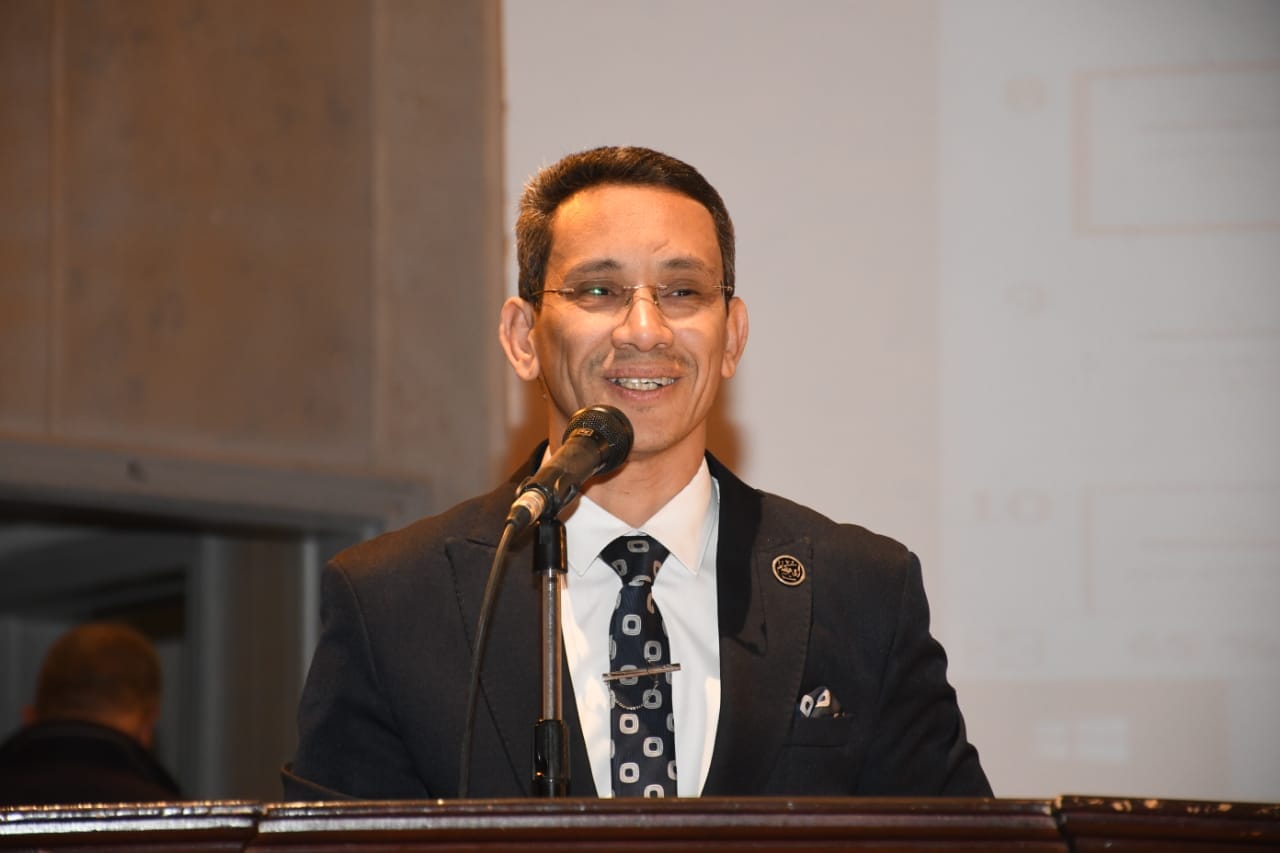 |
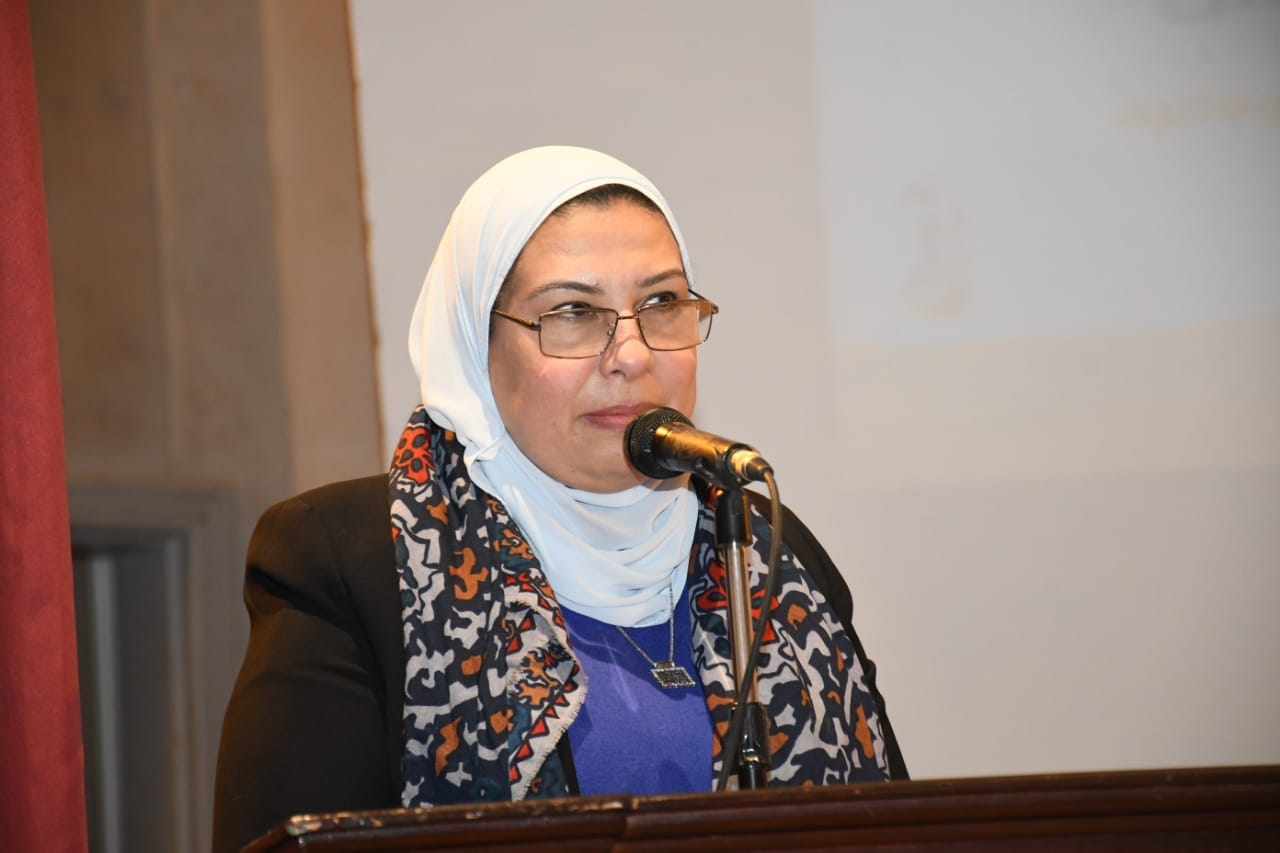 |
||
In the presence of Prof. Hossam Tantawi, Dean of the Faculty of Archeology and Coordination of Prof. Jihan Rajab, Advisor to the Vice President of the University for Community Service and Environmental Development Affairs and Coordination of Prof. Bassem Muhammad, Vice Dean of the Faculty of Antiquities for Community Service and Environmental Development Affairs, under the administrative supervision of Major General Hossam El-Sherbiny, Assistant Secretary-General of the University for Community Service and Environmental Development Affairs.
The symposium hosted Prof. Ghada Shalaby, Deputy Minister of Tourism and Antiquities for Tourism Affairs, and Prof. Aida Nassif, Senator.
Prof. Salwa Rashad, Dean of the Faculty of Al-Alsun, and Prof. Hanan Kamel, Dean of the Faculty of Arts, and a group of deputies of the university’s faculties, members of the National Council for Women, Cairo branch, and students of military education at the university, participate at the symposium.
During the symposium moderated by Prof. Jihan Rajab congratulated Prof. Ghada Farouk on the occasion of International Women’s Day, expressing her pride in Prof. Ghada Farouk, the first vice president in the history of Ain Shams University.
Prof. Ghada Shalaby explained the supportive role of women in the tourism field and raising awareness and culture for tourism development, noting the importance of tourism in Egypt and its role in advancing the economy, developing and growing tourist places, and raising community awareness about how to deal with tourists.
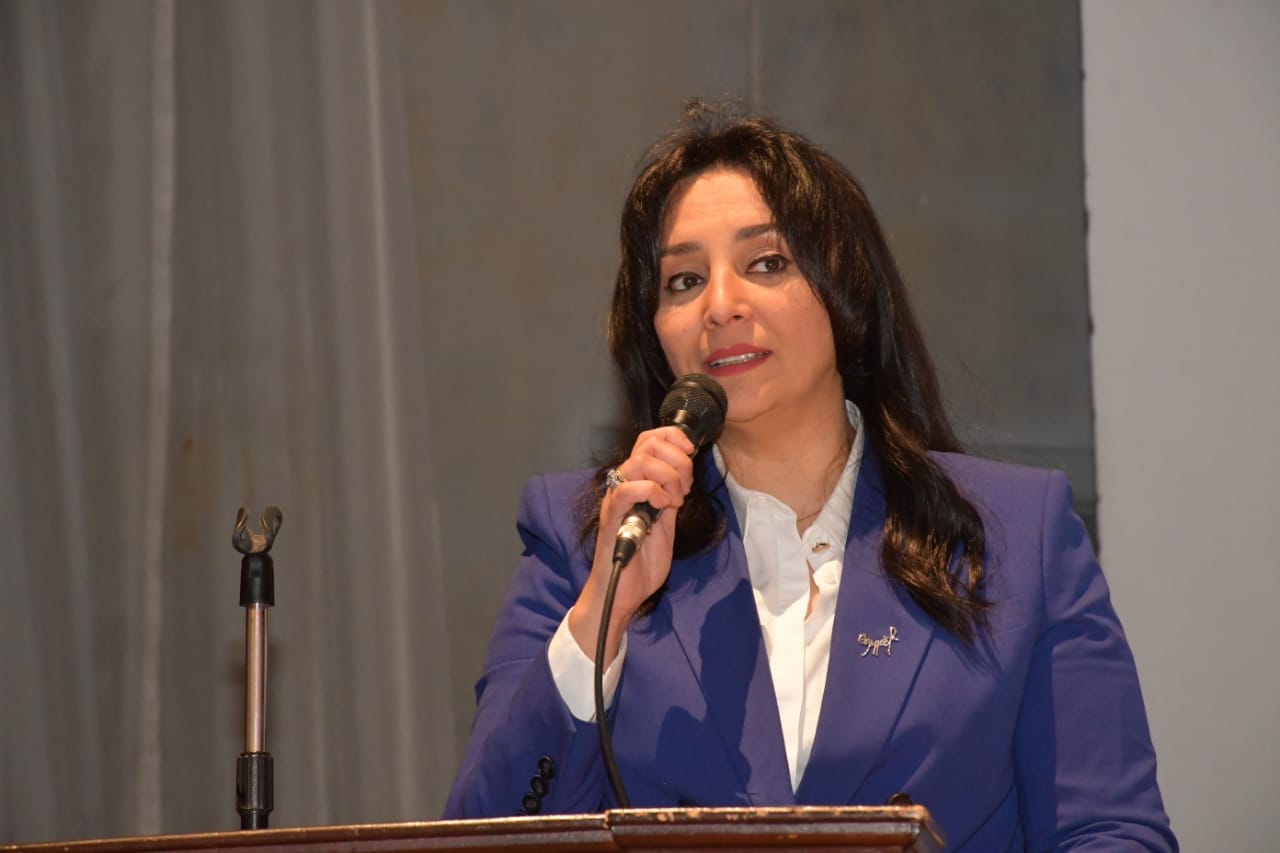 |
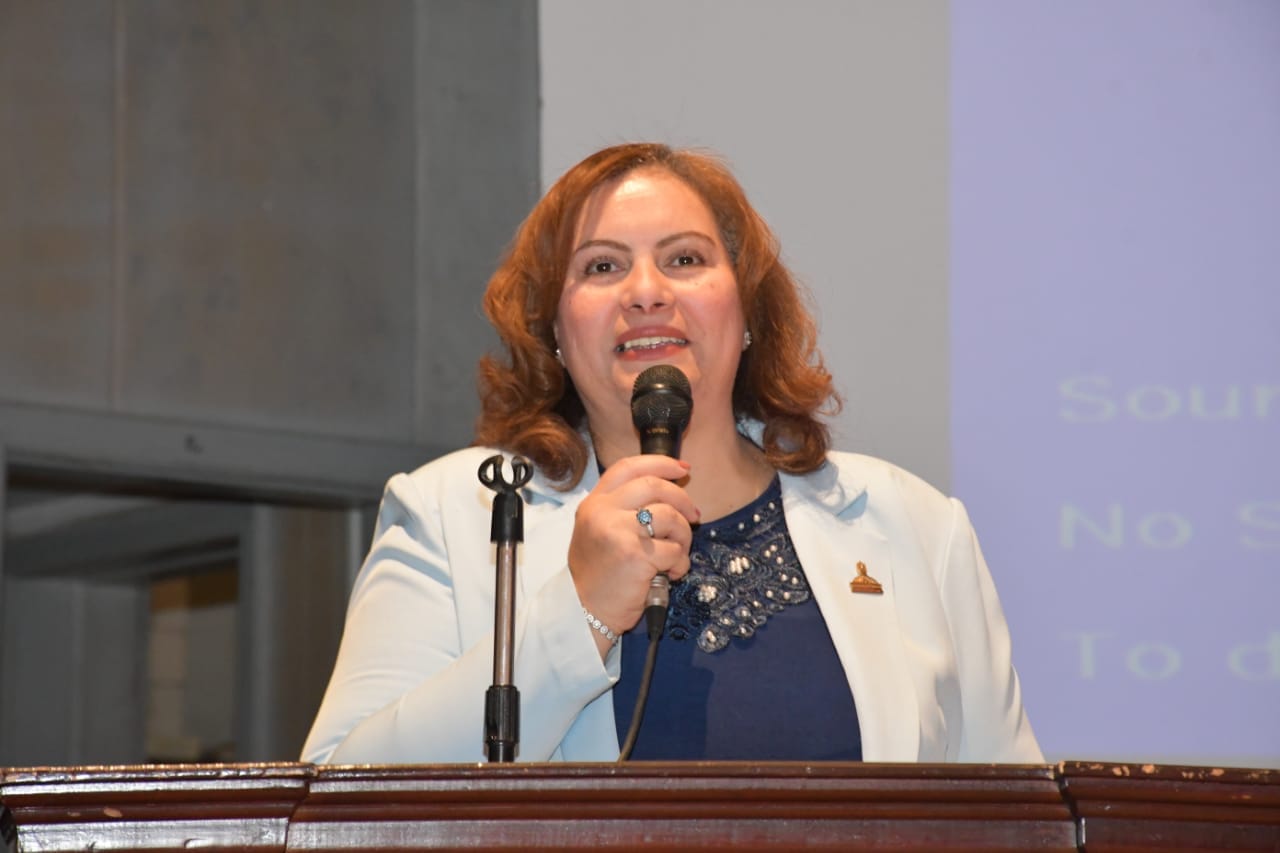 |
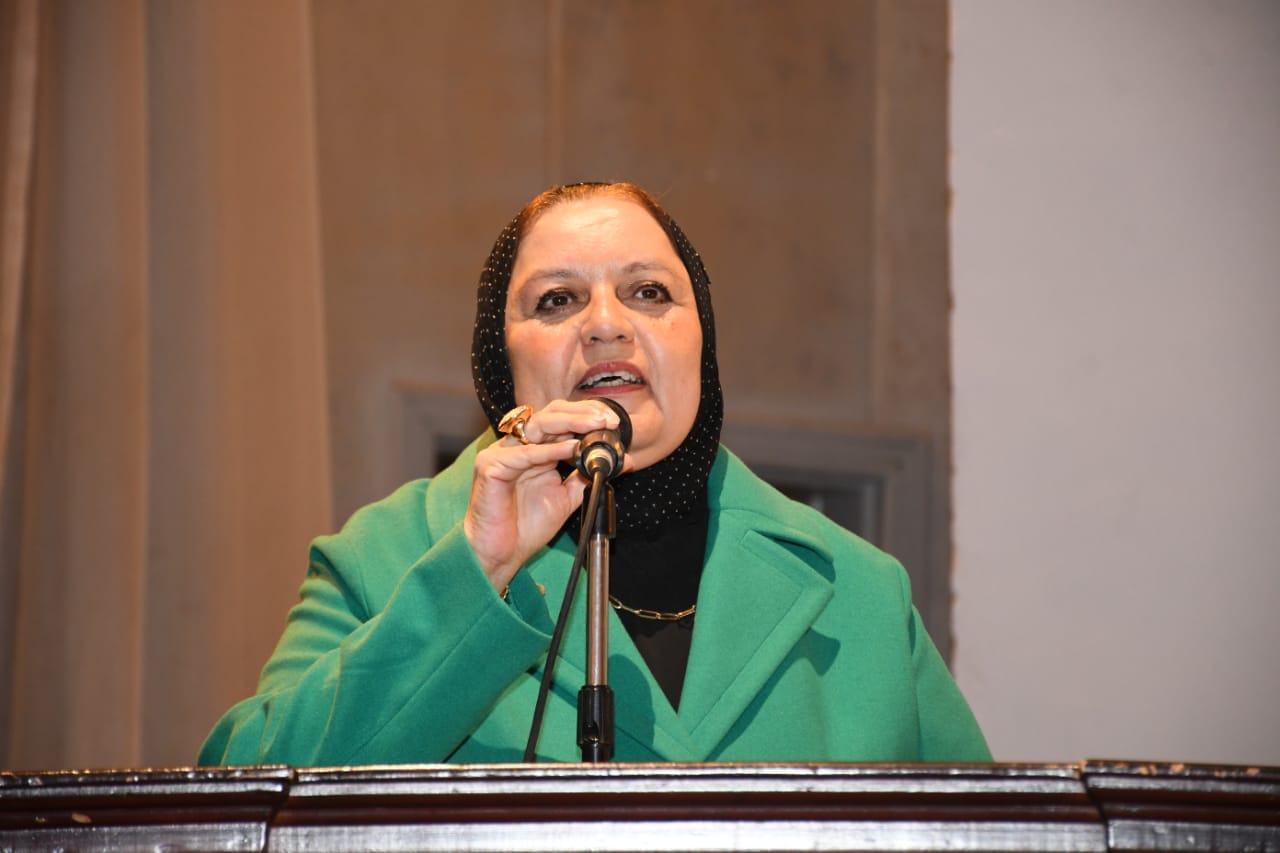 |
||
She pointed out that Egypt is distinguished by its tourism diversity, including “archeology and beach tourism,” stressing that Egypt possesses distinguished tourist places in the world, such as Dahshur and Siwa.
Dr. Aida Nassif referred to the national and political role of Egyptian women throughout the ages, reviewing a number of shining examples of women in the 1919 Revolution and the July 30 Revolution, their presence in all electoral elections, and their representation in the Egyptian Parliament and Senate, adding that the Egyptian man is the greatest supporter of women.
During the meeting, Prof. Hossam Tantawi pointed out the status of women throughout the different eras: The Egyptian woman, throughout the seven millennia of Egypt, practically translated her value into a high-level status as the only partner of the man in his religious and worldly life.
Women went beyond this status until they reached the point of sanctification, and female deities appeared alongside male gods. Indeed, the goddess of wisdom was in the form of a woman, and the goddess Isis was a symbol of loyalty and sincerity. Likewise, Egyptian women in ancient Egyptian history were able to enter into many different fields of work, and her practical appreciation reached the point of raising her to the throne of the country, as they assumed kingship in ancient times. Women also worked in the judiciary and in the field of medicine, and female writers among them reached positions (director - head of the warehouse department, controller of the royal warehouses - businesswoman - priestess).
Recently, the Egyptian woman continues to connect her past with her present. She is the doctor of yesterday and today, the engineer, the educator, the teacher, the vice president of the university, a member of the House of Representatives and the Senate, the deputy minister and even the minister. Today she is more successful, and we are more proud of her life inside and outside the country.
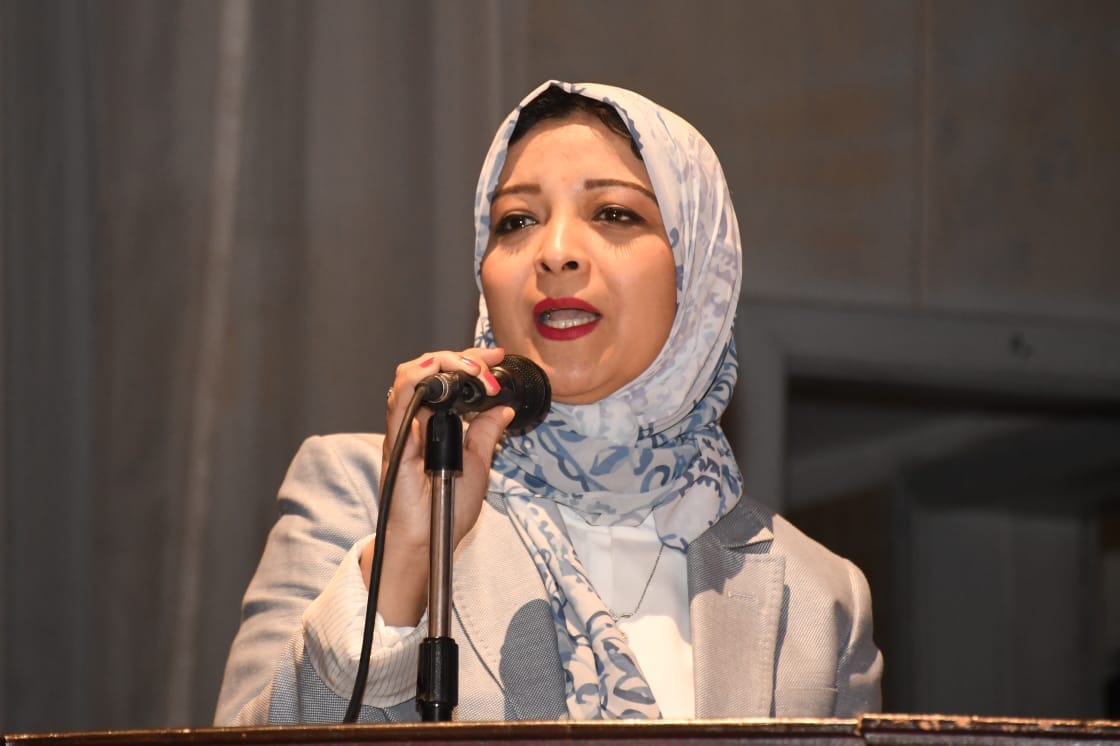 |
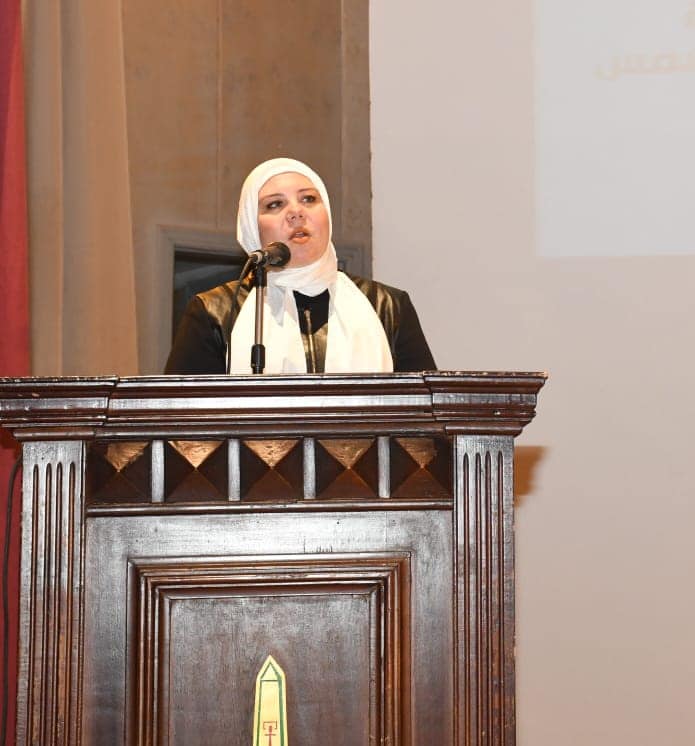 |
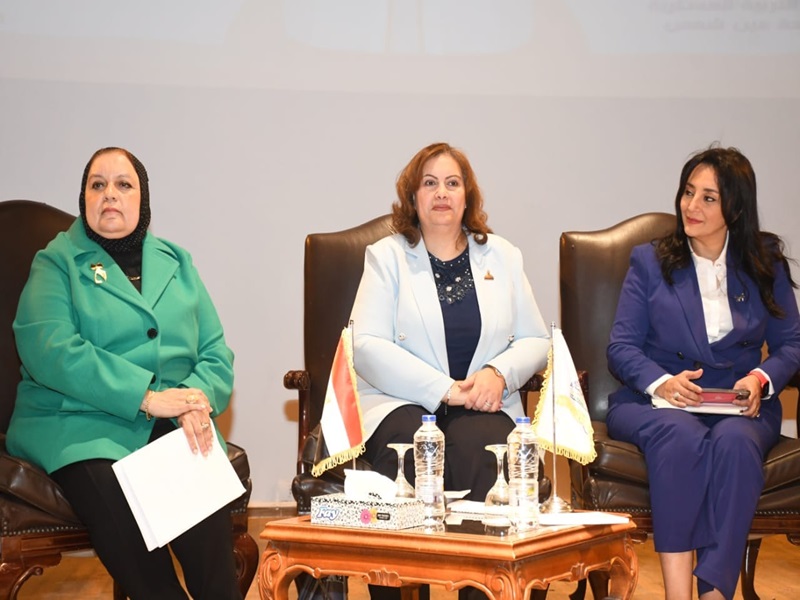 |
||
Hind Al-Hilali, Director of the Women’s Support and Anti-Violence Unit at the university, explained the origins of the unit and its role, explaining the importance of spreading the culture of a safe university environment supportive of women, noting that Ain Shams University is distinguished by women being represented in more than half of its university leaders.
Dr. Rabab Jeddah, Lecturer of Archeology, spoke about the image of women in ancient Egyptian history, where women were sanctified in all their forms and functions, and they held a number of high positions, starting with their accession to the throne, the position of the judiciary, and other high positions in the state, and they were embodied in the image of a number of “gods.”
Confirming that ancient Egyptian women had a high and valued status in social and economic life.
Dr. Rania Zidan, Lecturer of Greek and Roman antiquities, reviewed a number of prominent models in the Ptolemaic era, such as Cleopatra VII, noting that women did not have a high position in Greek civilization for a long time.
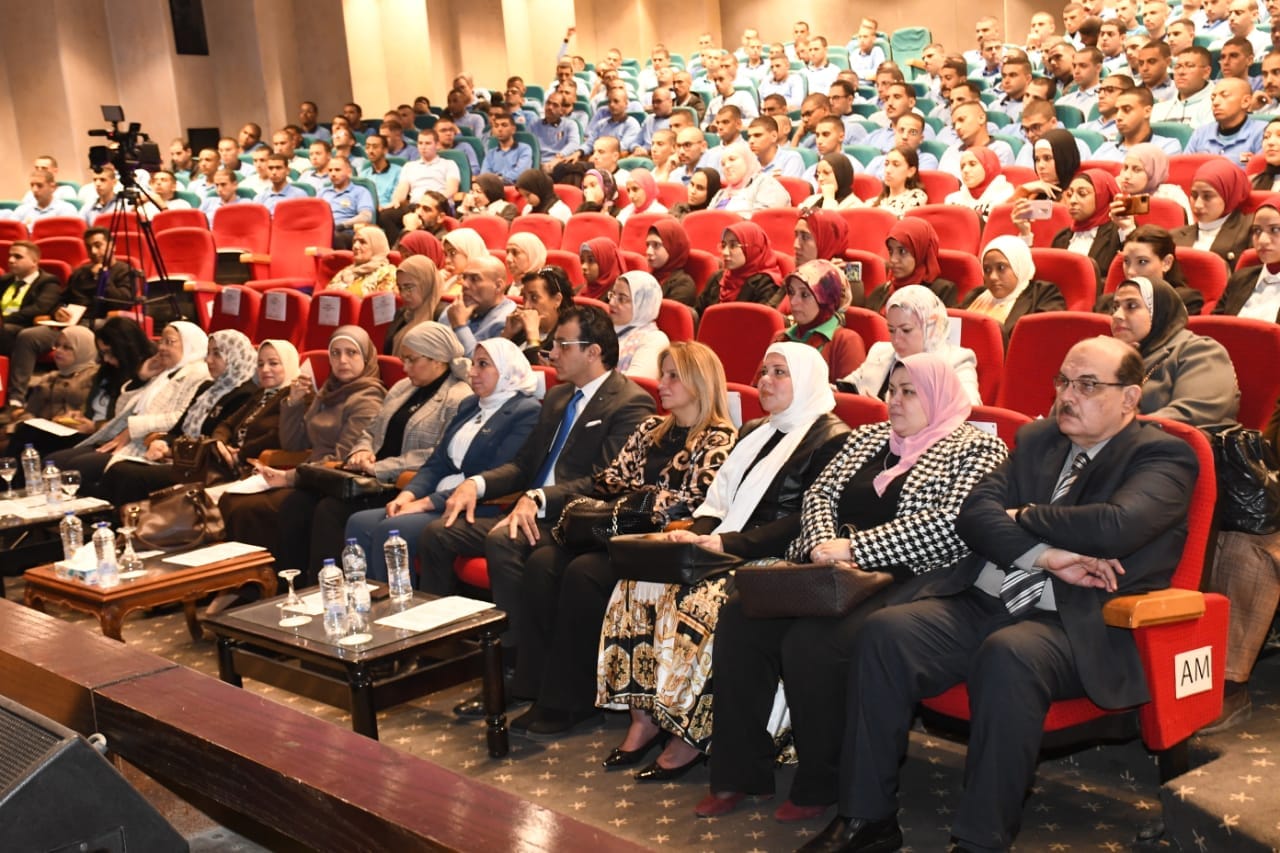 |
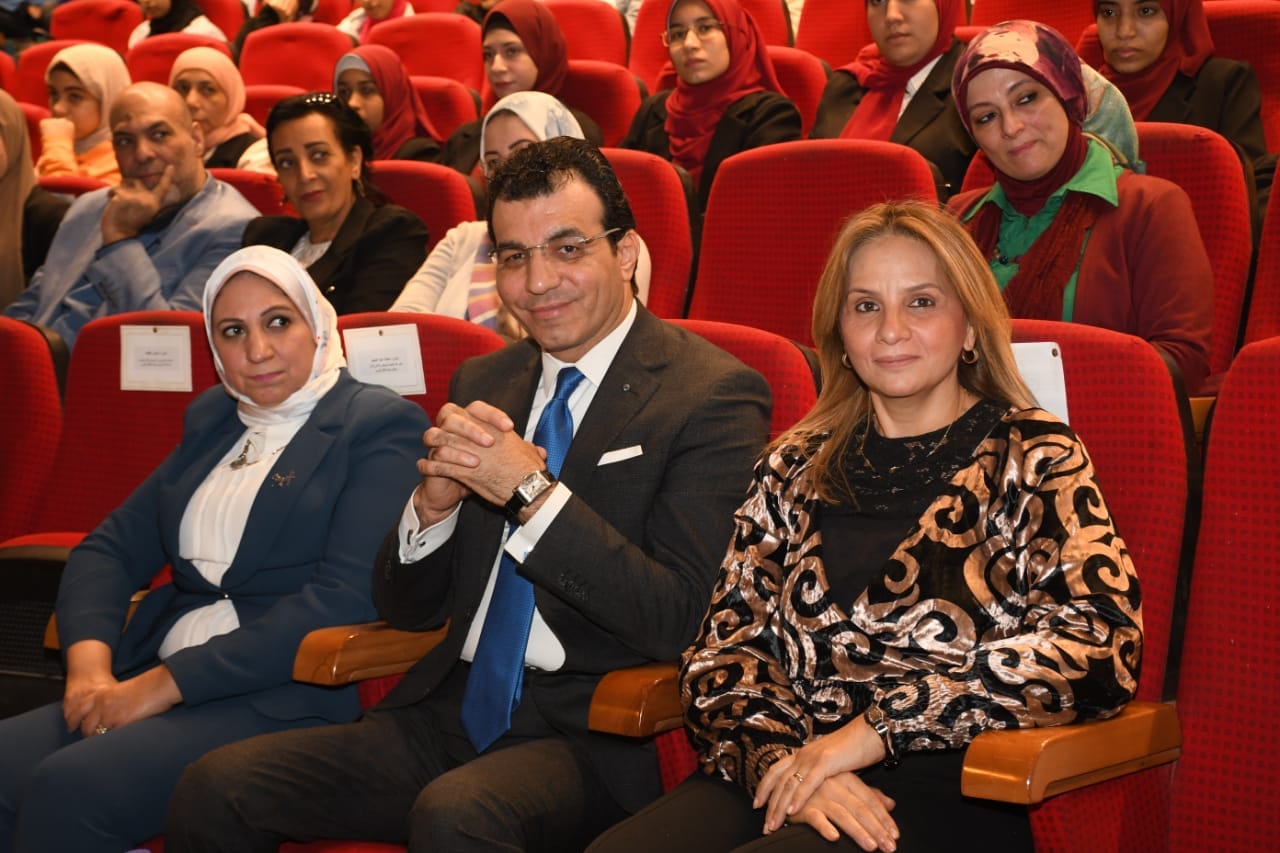 |
The celebration also included the showing of a documentary film explaining the status of women throughout the ages, from the ancient Egyptian era to the modern era, all the way to the current period, where they hold seven ministries. Then, a marketing film for tourism in Egypt was shown.
On the sidelines of the celebration, an art exhibition entitled The Role of Women Throughout the Ages was held for students of the College of Specific Education under the supervision of Prof. Noha Mustafa Abdel Aziz, Professor of Photography and head of the art education department at the faculty.


.svg)




